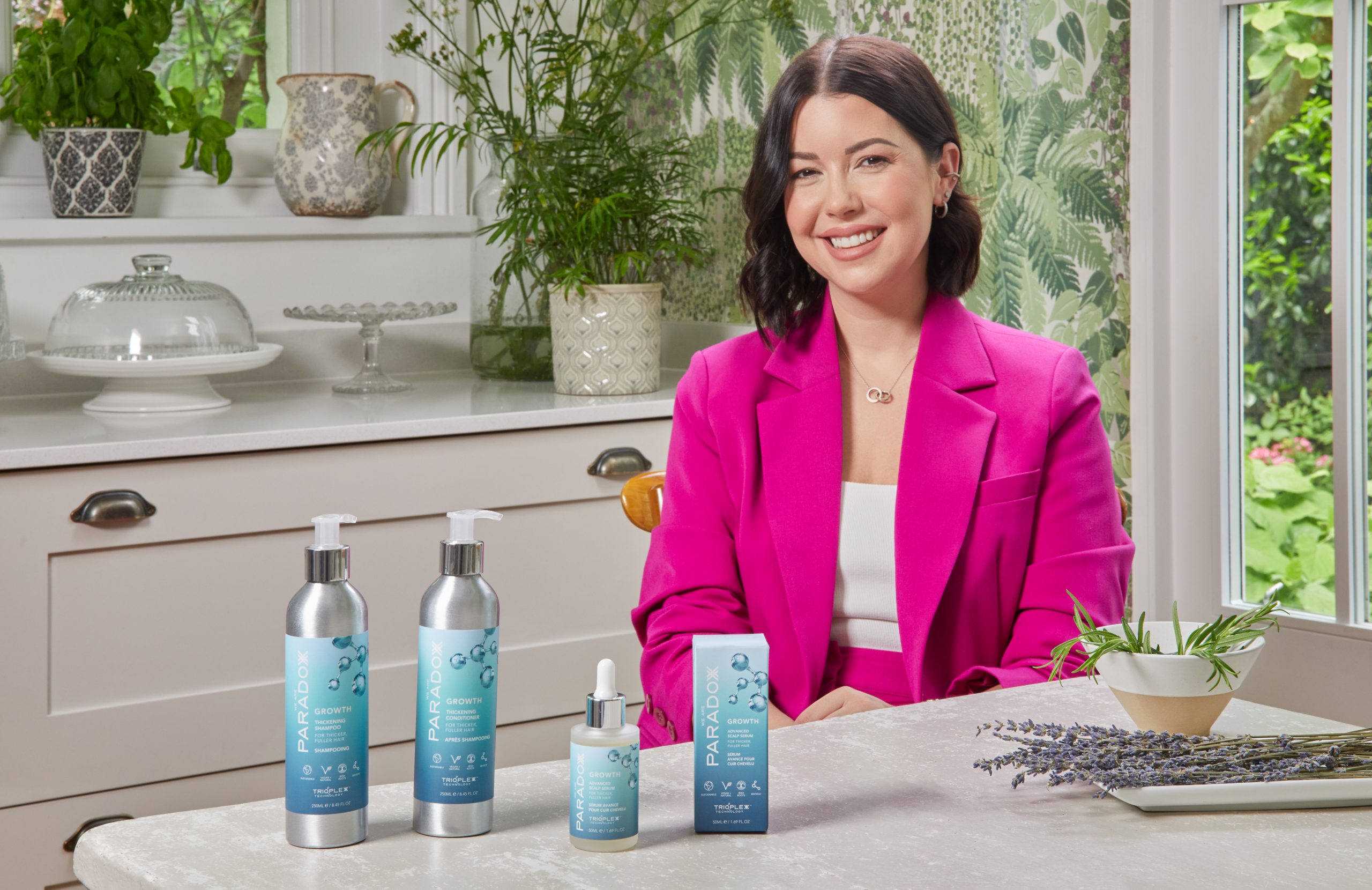If you’re looking for a sleek, luxurious haircare brand to introduce into your beauty routine, while still prioritising high-quality formulations that respect and care for your locks, then look no further than We Are Paradoxx. Founder Yolanda Cooper gives us all the details, including how these products can work for you in menopause and midlife.
I started We Are Paradoxx following a lightbulb moment, during which I realised that I was really careful about what products and ingredients I used on my face and body, but that I couldn’t find comparable haircare. When you consider that the absorption rate of your scalp is around four times greater than that of your forearms, it’s crazy to think what toxins you’re exposing yourself to through your haircare. So I produced a collection of high performance, biotech products that are free of toxins and up to 97% natural.
Our haircare collection works to encourage healthy hair growth, and create lightweight bounce, silky softness, high volume and frizz-free hair, thanks to the infusion of powerful extracts native to Ireland including kelp seaweed, carrageen moss, red clover, whiskey and hops. We champion plastic-free packaging, using aluminium and glass to help prevent further plastic pollution entering our environment.
How does hair change in menopause and midlife?
Hair density decreases with age, so as your oestrogen falls during perimenopause and menopause, your hair follicles can shrink and hair that grows will be much finer that previously. It can also cause a prolonged ‘shedding phase’ so you experience more hair fall and less hair growth. Combined, this can leave hair feeling and looking very flat and thin. Additionally, the hormonal changes can leave hair looking more frizzy and feeling dry.
What products would you recommend to a customer experiencing common symptoms like hair loss, reduction in volume and moisture?
Taking care of hair in menopause and midlife can require more hydrating hair care actives and thickening shampoos and conditioners to combat thinner hair, combined with targeted hair growth treatments such as our Advanced Scalp Serum. I would strongly advise using products with natural ingredients that don’t strip out the good oils from the hair, while incorporating smoothing and conditioning extracts such as organ oil, hazelnut oil and coconut oil. Avoid silicone-based products as these can cause product build up, prevent moisture from penetrating the hair shaft and encourage poor scalp health.
Do you have any top tips or tricks to help promote a healthy-looking head of hair?
Scalp health is so important for a healthy-looking head of hair, so when you’re washing your hair, always stimulate the scalp by massaging with your fingers. You can do this on dry hair a second time a day to encourage healthy hair growth. Additionally, don’t wash your hair too often. Over-washing can lead to a dry scalp and greasy hair so generally, shampooing every 2-3 days will support a healthy head of hair.
How can women feel more hair-confident?
Hair loss and thinning can really impact a person’s confidence and while there are lots of products and methods available to encourage hair growth and give the appearance of thicker, fuller hair, it is important to remember that you will notice any changes in your hair much more than others will. Feeling beauty confidence from within will make you look and feel better on the outside regardless of what hormonal changes you’re experiencing. So if you want to improve the outward look of your hair, definitely use the products available to help, but don’t let your hair define your overall confidence as you are worth so much more than just your hair.
For more stories, advice and interviews, head to the Menopause Your Way Stories hub. To browse and shop a curated edit of menopause products, visit the Menopause Your Way page on QVC.
The content of the QVC website is for information only. It is not intended as a substitute for professional medical advice, diagnosis or treatment. Always seek the advice of your doctor or other qualified health provider with any questions you may have regarding a medical condition. Never disregard professional medical advice or delay in seeking it because of something you have read on the QVC website.
We understand there’s a lot of information out there on the menopause. You can read through the NICE guidance on menopause management, as well as the NHS overview on the menopause.




